- About us
- Support the Gallery
- Venue hire
- Publications
- Research library
- Organisation chart
- Employment
- Contact us
- Make a booking
- Onsite programs
- Online programs
- School visit information
- Learning resources
- Little Darlings
- Professional learning
Michael Leunig (1945-2024), cartoonist and popular philosopher, raised in Footscray, Melbourne, studied briefly at university before dropping out to follow the career path of his father, who worked as a slaughterman. At the same time, he began drawing cartoons, and in the mid-1960s his work began to appear in such varied publications as Woman’s Day and London’s Oz magazine. He served as resident cartoonist for the afternoon paper Newsday before gaining wider recognition in the 1970s with his work for the Nation Review. In his earliest work Leunig endeavoured to conduct himself as a classic political cartoonist; but in 1969, frustrated by the genre’s conventions, he submitted a cartoon of a man wearing a teapot on his head riding into a sunset on a large duck. It was published, and Leunig would later come to see it as a symbolic depiction of his own escape from the strictures of political cartooning. His subsequent work – in which the duck has frequently reappeared, along with such characters as gentle Vasco Pyjama and humble Mr Curly – has been adapted for television, theatre and radio, and has been collected in many books, beginning with The Penguin Leunig (1974). Describing his own approach as ‘regressive, humorous, messy, mystical, primal and vaudevillian’, over decades he has persisted in his effort to convey ideas of an innocent and sacred personal world, and the fragile relationships and ecosystems of the world we share. He was a regular contributor to the Melbourne Age – in which his cartoons generally appeared three to four times a week – and the Sydney Morning Herald.
Helga Leunig, née Salwe, was working as a professional photographer at the Age in the late 1980s when she met Michael Leunig. She took this photograph of her husband in their then home in Hampton, Victoria.
Collection: National Portrait Gallery
Gift of Helga Leunig 2013
© Helga Leunig
Helga Leunig (4 portraits)



On one level The Companion talks about the most famous and frontline Australians, but on another it tells us about ourselves.
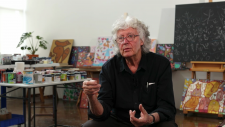
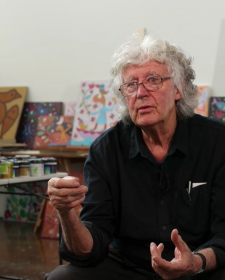
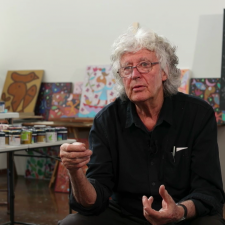
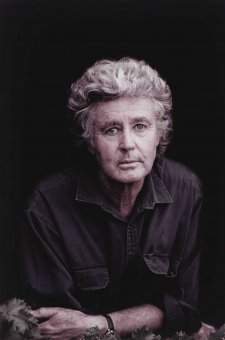
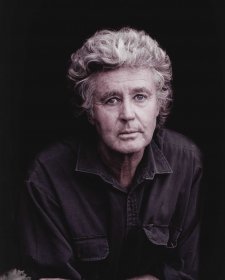
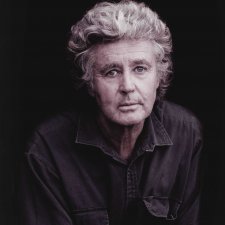
Cartoonist Michael Leunig's insights into the human condition and current affairs have become famous Australia-wide.